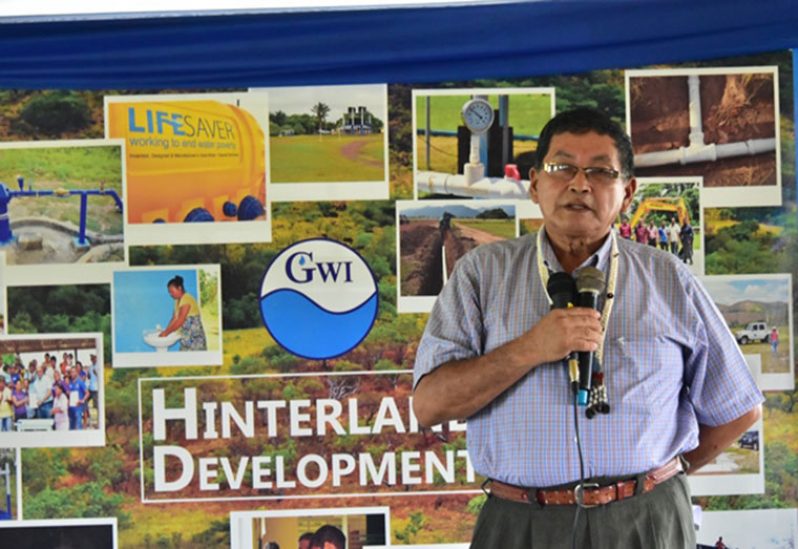– traders, persons seeking medical attention crossing illegally
By Vishani Ragobeer
WHILE Guyana remains on alert for the new strain of the COVID-19 virus discovered in Brazil, the authorities in Region Nine (Upper Takutu-Upper Essequibo) are concerned that the illegal crossings may lead to the importation of the strain and a surge in the number of cases of the virus in the region.
On Friday, Minister of Health, Dr. Frank Anthony, related that the land border between the two countries – the Takutu Bridge – has been closed since March last year. Limited travel is, however, allowed on Thursdays where goods are brought to Guyana or taken across to Brazil. This arrangement, Dr. Anthony affirmed, is properly supervised by the authority of both countries.
Due to the expansive and porous border between the two countries, however, travellers have been able to evade the authorities and illegally cross over to Brazil or from Brazil. To address the illegal crossing that may occur, the Health Minister said that there have been increased patrols from the joint services in both countries.
During an interview with the Guyana Chronicle on Monday, Regional Chairman, Brian Allicock, lamented, “People are still coming across and we see the Brazilian cases rising while we are trying to restrict movements.”

Allicock related that many of the illegal crossings occur at night, where, despite the best efforts to patrol the area by the armed forces and community policing groups, travellers are able to “slip through”. He also highlighted that many of the persons who crossover illegally travel in “cliques” that allow them to better maneuver the border restrictions.
According to the Regional Chairman, many of the people coming from Brazil or leaving Guyana to travel to Brazil are traders; alcohol, meat and other goods are some of the products traded. This has been the norm, but with the advent of COVID-19, the authorities have tried to restrict travel to prevent the spread of the disease.
What is concerning too, Allicock related, is that it has been observed that many of the persons coming from Brazil are seeking medical attention. It would appear as though the persons seeking medical attention are Guyanese who were living in Brazil.
It was reported that the Brazilian city of Manaus has been running out of oxygen needed by patients, as there has been a surge in COVID-19. And, Allicock related that few persons from as far as Manaus seem to be making their way to the Lethem Regional Hospital for treatment.
“We cannot disallow them, we have to help them,” Allicock asserted.
LOCKDOWN POSSIBLE
Minister Anthony said also that the health authorities in Region Nine have been on the lookout for any changes in the epidemiological pattern of the virus, which could potentially indicate that the strain has been imported. The Regional Chairman, on the other hand, said that the authorities in the region may have to consider a ‘lockdown’ to protect residents from becoming infected with the virus and its new strain.
“We don’t have too much capacity to deal with COVID or the new strain…we’re hoping that we don’t get that type of disease over here that requires that oxygen and so,” Allicock said.
Even without the new strain, though, he noted that not everyone in the region has been adhering to the gazetted COVID-19 emergency guidelines meant to help keep persons safe. He lamented that there was a string of social activities, including weddings, parties and anniversary celebrations, over the holiday season, which may contribute to a surge in the number of cases.
There are daily radio broadcasts, through which the regional authorities continue to emphasise the need for adherence to the COVID-19 guidelines. Allicock noted that the Central Health Ministry has advised the local authorities to continue emphasising these guidelines amid news of the Brazilian strain.
Investigations thus far have shown that the strains, or variants, of COVID-19 discovered in the United Kingdom, South Africa and Brazil seem to be more transmissible. This means that it is more likely that more persons can become infected, thus leading to a “surge” in the number of cases recorded in the country.
In order to adequately prepare for such a surge in cases, Virologist and Senior Lecturer at the University of the West Indies (UWI), Jamaica, Dr. Joshua Anzinger, advised the local health authorities to ready themselves to potentially expend more resources for testing and contact tracing.




.png)









